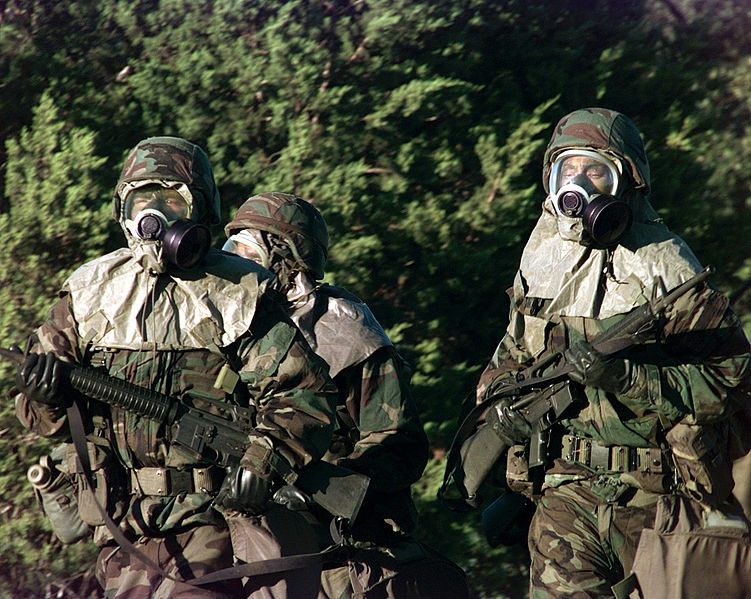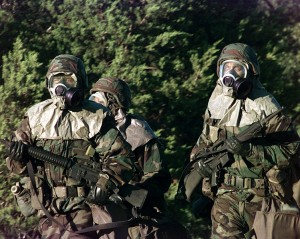
The Potential Rise of Sarin Manufacturing Among Non-State Actors
There is an increasing concern today about the chance that Syria’s chemical stocks could fall into the hands to non-state actors as the civil war there continues. Possibilities as worrying as future attacks on military forces to terror attacks against neighboring countries and communities are being suggested should these chemical stocks fall into the wrong hands.
Even if these stocks are controlled, the possible existence of the weapons systems themselves poses real problem in the potential aftermath of the Syrian civil war. An incident in the summer of 2004 in Iraq where militants appear to have unknowingly used an old binary shell, a chemical weapon delivery system, as an IED against American troops and released sarin gas in the process aptly demonstrates this.
More worrying however are signs that non-state actors might be beginning to manufacture sarin weapons as opposed to trying to acquire them from pre-existing stocks. In the last week there have been two separate reports of al-Qaeda linked groups being captured with sarin.
One report involves members of a Syrian group, al-Nusrah Front, being captured in Turkey with approximately 4.5 pounds of sarin. This has been reported by multiple news outlets in Turkey, though the Turkish government claims that while the individuals in question had chemical weapons related materials with them the materials did not include sarin. This would make sense if the components to make sarin were present but had not yet been mixed.
 It is suspected that the group was likely targeting US forces at Incirlik Air Base in Adana and/or the population of the city of Gaziantep.
It is suspected that the group was likely targeting US forces at Incirlik Air Base in Adana and/or the population of the city of Gaziantep.
While questions remain about where the sarin might have been obtained, a more troubling report came out of Iraq as well. The capture of an al-Qaeda cell that was actively manufacturing sarin for use in terror attacks within Iraq.
The use of sarin by non-state actors in unfortunately not a new development as the 1994 and 1995 terror attacks in Japan by Aum Shinrikyo demonstrate. What is concerning is the potential that non-state actors may begin increasingly looking towards manufacturing sarin as when there is little opportunity of acquiring it from pre-existing stocks.
Sarin should be given special consideration as its manufacture involves the simple mixing of two chemicals (methylphosphonyl difluoride and isopropyl alcohol) with relatively little skill required. Thus it may be prudent to begin giving increased concern not just to the pre-existing stocks of sarin in places like Syria, but to the small scale manufacture of sarin in increasingly destabilized regions.
To be clear the stocks that Syria has of sarin and other chemical weapons are a clear and present concern and must be observed to ensure their tight control. The chemical weapons stocks of Syria, in addition to the weapons systems to deploy them, offer those who would use them the ability to carry out whole sale destruction, while non-state actors who do not have access to an advanced military industrial complex will inherently be limited in the scale of their production and capabilities.
Thus, there is a difference in the types of threats and how they must be examined and watched for. Syria’s large stocks of chemical weapons and the systems to deploy them represent something of a problem from a military intelligence perspective while this new activity of manufacturing sarin by non-state actors on this small scale will require a more nuanced investigative approach similar to traditional law enforcement.
While the world must continue to remain vigilant in regards to pre-existing chemical weapons stocks and their security from non-state actors, the manufacture of sarin by non-state actors presents a new national security threat that will need to be approached with new tools.
Christopher Smith is a PhD student at the University of Arizona’s Department of Chemistry and Biochemistry with a focus on Analytical Chemistry.






[…] this week in a post in Flashpoints Blog I argued while chemical weapons are a major national security concern, the possible manufacturing […]